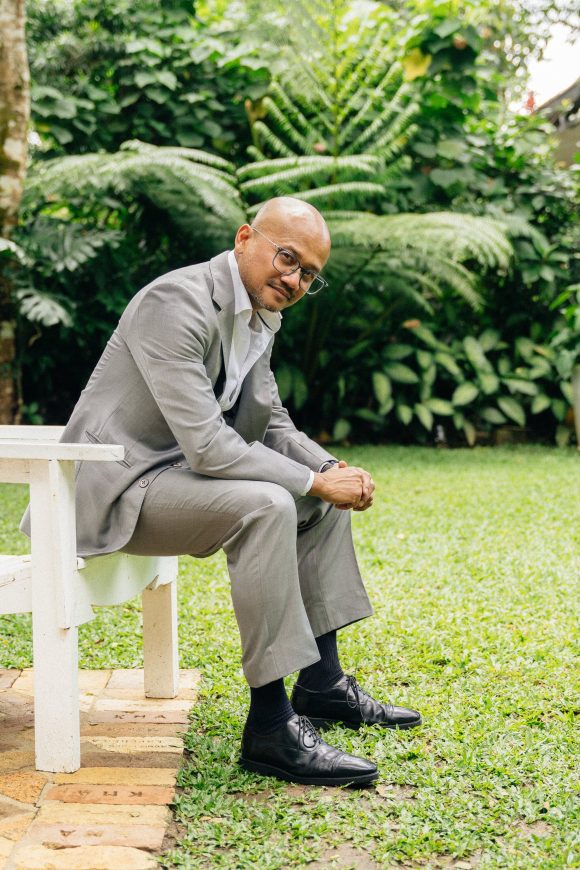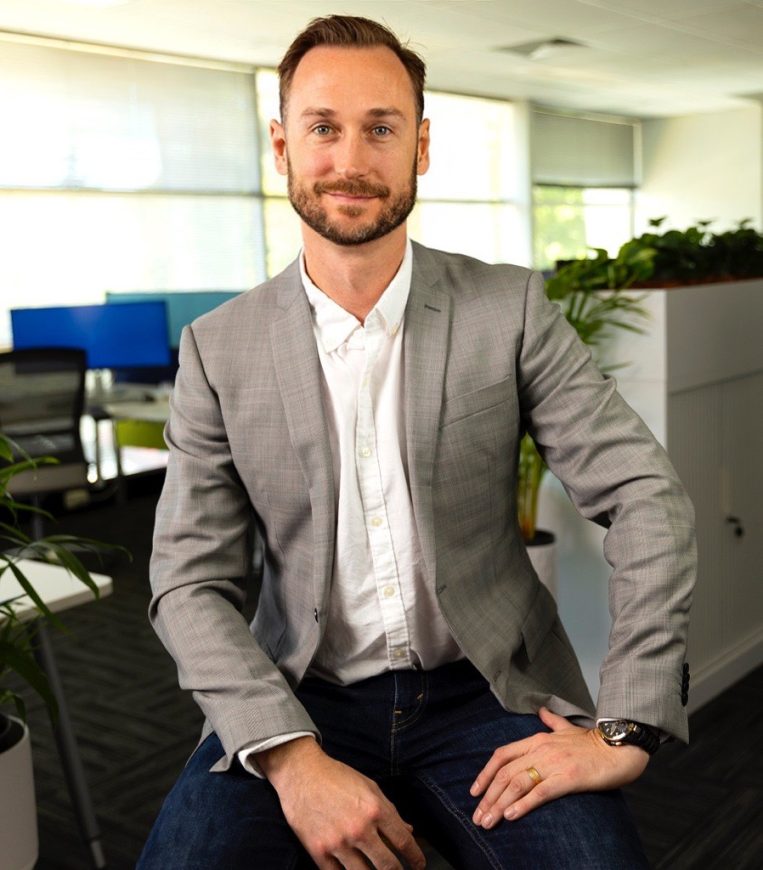A Reasonable State of Mind
Recently, there has been a growing recognition of the importance of mental health in the workplace. WYN thinkTALK on mental health issues addresses how stress, anxiety, depression and burnout, can significantly impact employees’ performance, job satisfaction and overall quality of life.
It’s time to shift perceptions on traditional workplace health and safety that focused primarily on physical risks and hazards. Equally important is the psychological well-being of employees. Like everything else today, the understanding of mental health has evolved so quickly and many employers are realising the need to prioritise mental well-being in their organisation. This is a good thing.
Source of stress at the workplace stems from heavy workloads, long hours, deadlines and interpersonal conflicts. Then, throw in external factors such as economic uncertainty, filial obligations, rocketing living costs and societal pressure, it can push someone right to the edge. Luckily, many organisations are now taking proactive steps to ensure a mentally healthy work environment including providing resources for mental health support, fostering a culture of open communication, and training managers to recognise as well as address mental health issues.
These actions are not only beneficial for the employees, but also for the organisation. This is because good mental health of their workforce leads to increased productivity, reduced absenteeism, improved employee morale and engagement. All of which, result in profitability.
In this era of remote work and increasing reliance on digital platforms, the challenges surrounding mental health are more complex. Boundaries between work and personal life have blurred, while social isolation and burnout have increased. So, there’s a need for some degree of collaboration between employers, employees and policymakers to tackle rising mental health issues in the workplace.
This article, inspired by WYN thinkTALK on mental health issues, explores aspects of countering mental health in the workplace through first hand experience and knowledge of the session’s speakers. Read what the experts have to say.
Azran Osman-Rani, Founder of Naluri
 Azran’s personal tricks to keep productivity and motivation up: ‘There are no tricks in life. Personally, I exercise regularly, eat healthily, sleep well and at least seven hours per night, build a social support network and be mindful in building focus as well as concentration muscles.’
Azran’s personal tricks to keep productivity and motivation up: ‘There are no tricks in life. Personally, I exercise regularly, eat healthily, sleep well and at least seven hours per night, build a social support network and be mindful in building focus as well as concentration muscles.’
Azran advises for organisations to prioritise mental health of employees: ‘Measure and quantify mental health in the workplace to track improvements in mental health and identify hotspots within the organisation. Naluri provides a range of mental health services for employees, which are fully-funded by employers. This includes 24-hour carelines, digital health coaching and therapy sessions with clinical psychologists.’
Azran pinpoints signs of burnout and early distress in employees: ‘Some employees may appear to be well externally, but are suffering in silence. Watch out for signs of sleep and appetite disruption, repeated feelings of sickness, physical soreness from muscle tightness, mood swings and disengagement. If these symptoms persist for more than just a few days, and worsens with each passing day, then these are early signs of mental distress.’
- Sleep disruption – when someone experiences insomnia, hypersomnia or wakes up in the middle of the night multiple times, and appears sleepy at work.
- Appetite disruption – when someone loses appetite or has a lot of cravings for sugary and salty foods.
- Repeated feelings of sickness, dizziness and fever.
- Physical soreness from muscle tightness, especially in the neck and lower back areas.
- Demonstrates mood swings, quickly irritable and bursts of anger.
- Disengagement – shutting down from talking to others, misses deadlines and does not appear to care or be worried about work not being done.

Cat Triviño, Co-founder of MindNation
Steps Cat took to counter anxiety and depression: ‘What helped greatly, was being able to get the right support I needed – experts like a psychiatrist who properly diagnosed and taught me about what I was going through, and a psychologist who worked through my emotions and thoughts. For me, the best way to get through these difficult times was to turn my anxiety and depression into something that was more familiar: I learned more about it, talked about it and normalised it with people around me so they could support me.’
Cat’s learning process of mental health: ‘Going through anxiety and depression made me understand the challenges in dealing with mental health issues, especially in the Philippines where it’s still highly stigmatised. I started my business to provide accessible as well as affordable mental health care and support others. These factors continue to help me heal to this day. Even when it feels like the usual things don’t work, and it seems like I’m back to square one, I’ve learned to appreciate the process and be kinder to myself.’
How Cat keeps herself productive, positive and motivated: ‘At the height of my depression and anxiety, I focused on things that gave me purpose and fulfilment. Purpose is the fuel that keeps you going and helps you make difficult decisions when you’re not at your best. Productivity doesn’t always mean moving all the time – it can also mean regular, intentional rest, so you don’t burnout. Don’t wait for the weekend or your next vacation to rest. Instead, set boundaries, spend time on hobbies and take time off to have a mindful lunch or coffee break, daily. Also, I surround myself with those who share the same values, and who inspire and support me.’
Jason van Schie, Founder of FlourishDx
How Jason prioritises mental health: ‘As a founder of a business focused on improving the way workplaces around the world prioritise mental health, this is always front of mind. Because my work is 24/7, I build in habits I know that are good for my mental health into everyday moments. I find opportunities for positive connections and fun with colleagues, friends and family members. I leverage my character strengths every day – particularly creativity, appreciation of beauty, excellence and perspective.’
How Jason prevents burnout and mental health deterioration: ‘I prevent burnout by trusting my team and delegating to them regularly. I also practice energy management. While I can’t control client demand and resourcing constraints, I can notice if I’m not concentrating or if my performance is down. When this happens, rather than pushing through, I will take a nap, leave work early or go for a walk.’
Jason’s practical habits for mental health: ‘I am someone who can take joy in little moments. That helps, particularly in the early days of a startup, when successes can be few and far between. I try not to open my laptop at home on work nights as I have three young kids, but if I need to, I’ll keep it as short as possible or put it off to the next day. Also, I never miss the monthly poker game with a good group of long-time friends.’
Jason’s tricks to keep his productivity, positivity and motivation consistent: ‘This is easier when you have your values, sense of purpose and work, intersect. However, I know this is not realistic. Although, I’ve been described as a “violent optimist” (I think every entrepreneur needs this trait!), there are times when I’m not productive or motivated. So, sometimes it’s better to put down tools and take some time out for myself. Rather than try and push against the rest and recovery my body and mind are telling me to take.’

Cheryl Tan, Founder of The Breathe Movement
Ways Cheryl prioritises mental health include: ‘Listening and trusting my gut feelings more often provide me with rich insights on how I’m really doing at an emotional, mental, physical and spiritual level. This guides my self-care practices: Should I head out to nature? Stay home and read a book? Or meet a friend and rock climb? I realise that I can’t do the same thing [to ease] my every discomfort. Hence, options in my self-care toolkit help me prioritise my wellness without feeling like it’s a drag.’
Ways Cheryl identify signs of burnout and mental health deterioration: ‘I tend to get extremely angsty at the tiniest thing that I perceive as a negative trigger. When I’m not well calibrated, it’s harder for me to [have] balanced perspectives. Now, I’m quick to realise when my battery is low. Even when life pushes me forward too fast and I’ve to keep running, it does come to a point where I say enough is enough and take time off to and take time off to recharge my batteries by meditating, rock climbing, spending time with my dog, or even just cooking a hearty meal for myself. My experience of extreme burnout has cautioned me to take measures before they escalate into a complete breakdown.’
How Cheryl keeps productive, positive and motivated: ‘I don’t have the answer. I’d love to learn some tricks! I’m a huge procrastinator. The things that have helped are meditation, yoga and my bullet journal. The latter keeps me on track, and for me to visibly see tasks that are priority and shouldn’t be procrastinated. Meditation and yoga keep my anxiety at bay when deadlines loom close and keep me grounded.’
Register for WYN thinkTALK on Mental Strategy: Building High Performing Teams. The online session is on 22 June 2023 at 2pm (Malaysia time).
Main photo by Zac Durant on Unsplash.





